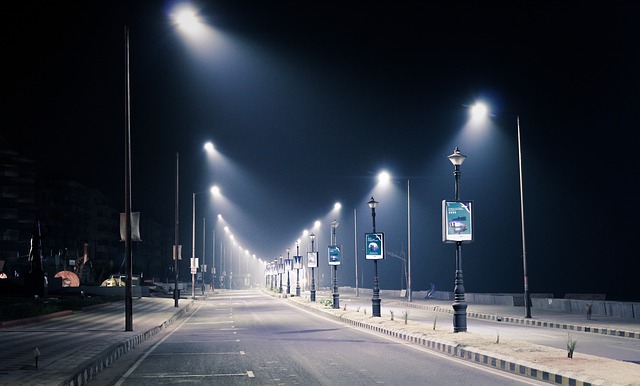There are more than 350 million street lamps in the world. While they’re an important part of any urban infrastructure at night, they also consume huge amounts of energy, according to some estimates, maybe even accounting for up to 19 per cent of global energy use. They’re an unavoidable burden on municipal budgets too, costing Europe roughly 3 billion EUR a year. And while more and more cities are switching from sodium to LED lamps, in Europe three quarters of the current streetlights are still more than 25 years old.
Currently, in most urban areas, the majority of these old-fashioned streetlights burn constantly throughout the night – even when there’s not a single person around. In an attempt to save both money and electricity and reduce their carbon footprints, more and more cities – from San Diego to Copenhagen – are using smart technologies to automatically turn off or dim the lights in uninhabited areas at night. Here at RESET we recently reported on a pilot project going ahead in Norway, where self-dimming streetlights are being tested on low-traffic country roads at night. Adaptive, energy-efficient and smart lighting systems are a key feature of the sustainable, smart cities of the future, and the Amsterdam-based Tvilight is one of the companies at the forefront.
From Movement to Light
The key element in Tvilight‘s smart lighting system is a robust, plug-and-play wireless motion sensor which can be easily attached to existing streetlights. The result is on-demand motion-based illumination, with the sensor automatically adjusting the brightness of the light based on the presence of cars, cyclists or pedestrians. A real-time mesh network triggers the lights nearby too, creating a safe circle of light around the person or vehicle nearby. When movement is no longer detected, they automatically dim again.
Their comprehensive IoT system offers a whole range of other practical tools too, including a web-based platform for remote real-time monitoring and management that delivers in-depth analysis and information about the network, and a mobile maintenance app complete with geo-location to help repair companies locate the devices when they need to be fixed.
It’s thought that switching to smart lighting systems such as this one could deliver energy savings of 50 to 70 per cent and cut electricity bills by around 2 billion EUR per year, as well as reducing maintenance costs – money that would be freed up to be spent on other vital public services. International lighting giant Osram is so convinced by the company that they recently secured 41.5 percent shares in the company.
The startup wants to develop its technology further in the future, with the addition of sensors that can also be used to measure air quality, aid intelligent parking and connect up with traffic lights. They certainly have enough locations in which to test out any new developments. Alongside 30 Dutch cities, there are also trial projects underway in Seoul, at Amsterdam’s Schiphol airport and in the German cities of Cologne, Münster and Berlin.






